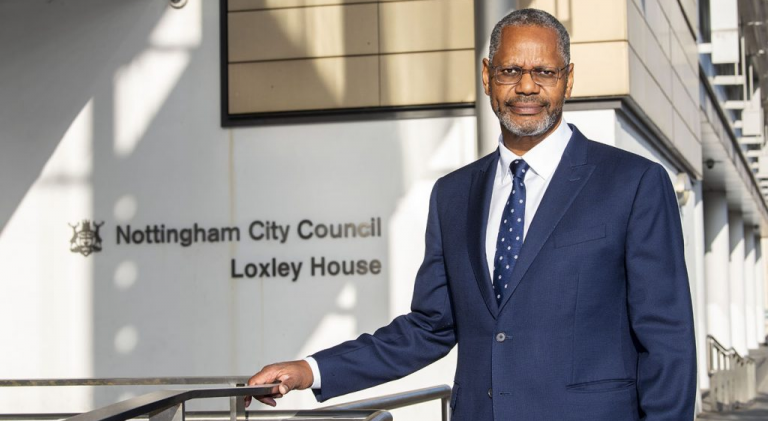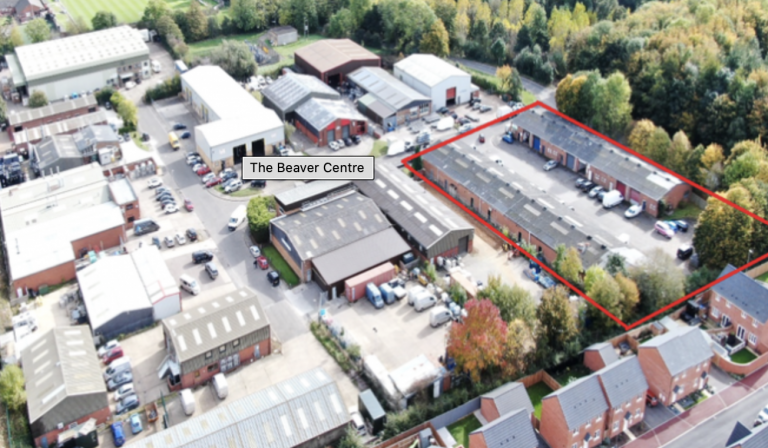Monday, March 10, 2025
PKF Smith Cooper is delighted to welcome Corporate Finance Senior Executive Harnil Motivaras to the team. Harnil joins from PwC where he worked alongside large corporate clients, as well as SME’s and owner-managed businesses, operating across a range of industries.
The specialist corporate finance division of PKF Smith Cooper, of which Harnil will be a key member, offers both practical and strategic advice across a variety of areas, whether clients are looking to buy, sell or grow a business.
The team specialises in high-intensity project management of deals, from company acquisitions and disposals, through to fundraising and succession planning.
The corporate finance team are also experts in a variety of sectors, from food and drink and self storage, to fire & security and automotive, making PKF Smith Cooper the adviser of choice in national and international transactions in these sectors.
James Ward, Corporate Finance Director based in the Nottingham office comments: “I am delighted to welcome Harnil to the team. He will have an integral role in the development of PKF Smith Cooper’s corporate finance team primarily in Nottingham, but also across the wider firm working alongside colleagues in our Derby and Birmingham offices.
Our corporate finance team continues to develop, and I look forward to working alongside Harnil in creating innovative solutions and value for the clients we work with.
We are continuing to recruit and are always looking for people of all experience levels to join our award-winning team”.
Lincolnshire Co-op’s CEO Ursula Lidbetter has announced her plan to retire at the end of 2022, after a career with the Society spanning 37 years.
Ursula, who started in 1985 as a buyer and department manager, is in her 18th year as CEO of Lincolnshire Co-op, which has over 220 varied outlets and recorded sales of over £355m in 2020/21.
She’s also been at the helm of major projects including the creation of the Lincoln Science and Innovation Park and The Cornhill Quarter development in Lincoln. She received her OBE in 2019 for services to the local economy.
This year will see Ursula turn 60 and, after almost two thirds of her life working for Lincolnshire Co-op, she feels it’s the right time to retire and spend more time with family.
She said: “It’s a privilege to work alongside my 2,900 colleagues to lead this special business, where we aim to make life better in our communities every day.
“It’s also wonderful to collaborate with many like-minded people in organisations across Lincolnshire and beyond to bring forward schemes making such a difference.
“In due course, I will hand over to my successor who will take us into the next stage of our development.”
Lincolnshire Co-op’s Board of Directors will be conducting a recruitment process for the new CEO over coming months.
Chair David Cowell said: “The Board would like to thank Ursula for the huge contribution she has made to the success of the society during her time here. She will be leaving our co-op in great shape to move on to its next chapter, based upon the strong legacy that has been built over 161 years of trading.
“In the meantime, we have a busy programme of work for 2022 and look forward to delivering this under Ursula’s expert leadership.”
SMB College Group have recently embarked on an exciting new venture with the Defence Animal Training Regiment (DATR), forging a partnership that will serve to provide a wealth of industry-relevant knowledge and experience for students.
Students from the college’s Horticulture, Countryside Management, Uniformed Public Services, Animal Management and Equine departments will benefit from work placements, industry insight and enrichment with the DATR, which is located in Melton Mowbray – just 7 miles away from the college’s 850-acre Brooksby estate.
This new working agreement will also facilitate the sharing of industry knowledge, allowing both organisations to champion welfare, care and industry best practice.
When speaking of this exciting new partnership and the opportunities it will bring, the Commanding Officer of the Defence Animal Training Regiment, Lieutenant Colonel Mike Robinson, said ‘This Memorandum of Understanding recognises the significant benefits of our cooperative and reciprocal relationship, notably exploiting the land-based, animal care and public service parallels that exist between our two organisations.
‘We have identified opportunities that will strengthen both our organisations and allow for increased knowledge exchange, work placement opportunities and improvements to animal practice. The benefits are already being realised with partnering between the College, Defence Animal Training Regiment and The Dog Trust’s Animal Welfare Scheme as a triumvirate championing welfare, care and industry best-practice.
‘Furthermore, the College also provides an OFSTED-recommended Independent Advisory Panel to support the assurance of the duty of care to our trainees. The pastoral expertise of the College provides us with an independent, objective perspective, which is an invaluable source of advice, challenge and encouragement. It also supports our young soldiers under training and strengthens the Regiment’s continuous improvement programme.’
James Thorne, Assistant Principal at SMB College Group, added ‘SMB College Group – Brooksby Campus is delighted to be working with Defence Animal Training Regiment (DATR – MOD). This partnership will bring so many new opportunities to both our Further Education learners and our Undergraduate students, including a valuable insight into a very professional and high performing working environment.
‘Students will be working on a range of projects including involvement in the Equine and Dog units, competitions, and welfare schemes, in addition to conservation and environment input for the campus base. Uniformed Public Services students will also have the opportunity to experience personal training sessions. We look forward to working with DATR through this long term collaborative partnership’.
One such opportunity, that is already underway, is an Animal Management degree project in which students are engaging with the DATR and Dogs Trust Animal Welfare Scheme. When asked about this project, Animal Management Lecturer, Beth Prior, said ‘This scheme has allowed our students to put their knowledge into practice, completing a range of animal welfare assessments during regular visits to DATR, and sharing knowledge of animal welfare, care and industry best practice between the three organisations.’
SMB College Group is a Further Education college based across three campuses in Leicestershire. The college’s Brooksby Campus is an 850-acre countryside estate that specialises in training students in the land-based industries, sport and uniformed public services, with opportunities ranging from Entry Level courses up to Undergraduate degree programmes.
The Defence Animal Training Regiment is a training establishment based in Melton Mowbray, which trains animals for all three armed forces. Its headquarters are also the principal base of the Royal Army Veterinary Corps.
A pair of volunteers from Northampton who run an eco-sustainable farm with an education and rejuvenation centre have received Prime Minister Boris Johnson’s daily Points of Light award.
They have now been described as outstanding individuals by those working in Parliament.
‘Sol Haven’, run by Sammuel Yisrael and Natasha Caton in Moulton, hosts wellbeing projects, particularly for people who have experienced hardship and has delivered wellbeing events to over 500 people, including many vulnerable and homeless individuals.
Natasha experienced various addictions and homelessness at a young age, and partnered with Sammuel, a long-time community volunteer who has extensive experience of working with people who are disabled, have learning disabilities or are living homeless.
Together they created a project that could help people grow and recover from adversity by connecting meaningfully with natural surroundings. On their farm, the pair provide sessions in rural skills, growing food, eco-therapy, meditation, nature-based arts and crafts, and cooking, led by Natasha, who is a Michelin-trained vegan chef.
Congratulating Sammuel and Natasha on their award, Chris Heaton-Harris, MP for Daventry, said: “It is wonderful news that Sammuel and Natasha are being recognised by the Prime Minister for their outstanding contribution and support to homeless and vulnerable people in the community. ‘Sol Haven’ really is changing people’s lives through education and rejuvenation, and I hope their actions will inspire others to provide a helping hand to those in need. A very big well done indeed.”
Sammuel and Natasha said: “This is an incredibly humbling experience to be honoured in this way. Points of Light is an important initiative and we are honoured to be considered as ‘outstanding individuals’ by those working in Parliament.
“We are beyond delighted to be able to offer vulnerable and homeless individuals a safe working environment to learn, grow, and reach their full potential. Bringing all our passions and expertise together to offer an opportunity we truly believe, and hope will help many people.”
Sammuel and Natasha are recipients of the Prime Minister’s UK daily Points of Light award, which was first launched in April 2014 to recognise outstanding individuals making a difference where they live.
This award comes at the time of them launching their new wellbeing course ‘Ploughing The Mind’ which has been supported by the National Lottery Community Fund.
The ‘Ploughing The Mind’ 12-week course has been carefully designed to help people struggling with their mental health to reconnect with the community, themselves and make new friends.
Activities within the course include nature and horticultural therapy, mental health education, movement meditation, drumming and cooking; a mixture of activities combined to provide support, outlets for expression and the ability to learn new skills.
Following the completion of the programme Sol Haven will look to continue to support people in a wider programme. One that will continue to help them to overcome the barriers to both engaging socially with others and finding work.
Clowes Developments (UK) Limited have now submitted a Planning Application for EMDC 342.
This is a huge landmark for both Clowes and FHP as the development of EMDC 342, a new 342,000ft² distribution centre which will be delivered for the summer of 2023, will complete the 200 acre redevelopment of the former Castle Donington Power Station at East Midlands Distribution Centre, J24, Castle Donington.
EMDC is a nationally recognised Distribution Park dominated by the one million square foot e-commerce Distribution Centre of Marks and Spencer.
The site is also the home to Moran Logistics who relocated their UK HQ to EMDC and to Birlea Furniture who are one of the fastest growing online furniture providers within the UK.
Plot 1 has recently been completed providing a further 521,000 sq ft (48,402 sq m), Big distribution unit on site.
Interest is invited in the remainder of the site where units are available in the size range 30,000ft² (2,787m²) to 342,744ft² (31,842m²).
The site is a hive of activity with EMDC 190 (190,000ft²) and EMDC 280 (280,000ft²) both under construction and due for completion in July / August.
Contact John Proctor or Tim Gilbertson at FHP for further information.
Nottingham City Council, in collaboration with Nottingham Business Improvement District (BID), the organisation behind It’s in Nottingham; is proud to present the first Ay-UpMarket.
The three-day event will run in Old Market Square from Friday 25 March to Sunday 27 March and as part of a partnership with the Creative Quarter, the market will also be held in Sneinton Market Avenues on Saturday 26 March.
The Ay-UpMarket gives Nottingham’s independent retail businesses, both bricks and mortar and online the opportunity to trade at a unique event to highlight the city’s fantastic independent retail sector.
This event has been made possible with funding available nationally from the European Regional Development Fund (ERDF). The Welcome Back Fund has provided councils across England a share of £56 million to support the safe return to high streets and help build back better from the pandemic.
Alongside the market stalls, the event will also include a full programme of live music and other street entertainers to attract visitors of all ages.
While the event is a celebration of today’s Nottingham’s independent traders, it also recognises the heritage of Nottingham’s markets. Historically, the Old Market Square forms a meeting place for the people of Nottingham, where the first “official” mention of a Nottingham market is during the reign of Henry II (1154–1189). It seems pretty much anything and everything could be traded at the Great Market Place.
Down at Sneinton Market Avenues, the whole area was changed by the arrival of the Wholesale Market moved from the Old Market Square in 1900 to accommodate the new electric trams. All the traders moved – wholesale fruit, flower and vegetable dealers and fish, game and poultry merchants.
The entertainment programme also nods to our history of market trading, where on Friday you can make your way through a honey-perfumed bee colony, grab some gardening advice from The Strolling Gardeners, or meet the Vegetable Nannies on a day trip with their family of little ones. So, if you see an old pram brimming with some beautiful bouncing baby fruits and vegetables, come over and say hello!
On Saturday the theme turns fishy, with a chance to explore a whale’s belly, meet a mermaid as well as encountering a giant lobster, octopuses, dancing prawns, and deep-sea divers.
On Sunday the city’s makers and creators are celebrated through poetry, live music and giant colouring wall.
Cllr Sam Webster Portfolio Holder for Finance and Resources said – “We are very pleased to be able to use this grant funding to encourage more people back into our city centre in this way. It’s an opportunity to support and showcase our local independent businesses which particularly felt the strains of the last two years. I’ll certainly be visiting and I look forward to meeting some of the traders at the event.”
Commenting on the event, Alex Flint, CEO of Nottingham Business Improvement District (BID)said: “We are delighted to be part of the first ever Ay-UpMarket – this is a great opportunity to shine the spotlight on all the amazing independent businesses that we have here in the city, as well as boosting footfall by encouraging both locals and visitors alike to come into Nottingham city centre.”
The team from Sneinton Market Avenues said “‘As a community, we are really looking forward to hosting lots of independent businesses along The Avenues, including exciting Nottingham based emerging brands! The day is set to be a fun one!”
Ay-UpMarket
Friday 25 March to Sunday 27 March: Old Market Square
Saturday 26 March: Sneinton Market Avenues
Opening times: Friday – Saturday: 10am – 7pm
Sunday: 10am – 5pm
Mel Barrett, Chief Executive of Nottingham City Council, has been appointed as Lead for Nottingham City Place Based Partnership (PBP). He will take over from Dr Hugh Porter as Interim Lead on 1 April 2022.
The Nottingham City PBP, formerly known as the Integrated Care Partnership, was established in 2019 to bring together health and care services including GPs, local authority services, community services and hospitals, as well as wider services provided by the community, voluntary and social enterprise sector.
All partners of the Nottingham City PBP have a key role to play in supporting the health and wellbeing of citizens, working together to provide care and support to people, regardless of background, circumstances or where people live in the city.
Mel Barrett’s role leading both the City Council and the PBP will strengthen his ambition to improve health and wellbeing and reduce health inequalities in Nottingham.
He said: “The response to the Covid-19 pandemic in Nottingham has proven what is possible when a group of organisations corral together around a shared purpose and set of objectives and I am keen that we continue to build on this. However, what the pandemic has also done is bring into sharp focus the acute inequalities that exist in Nottingham.
“The fact that a woman in Hyson Green can have the second-lowest healthy life expectancy in the country is something we must address, and we will only improve this by addressing it together in genuine co-production with our citizens.
“I believe that by working together at pace with our citizens, we are stronger than any individual partner acting alone. By continuing this journey together, we have not just the opportunity but the responsibility to deliver on our shared ambition to give every person living in Nottingham equal access to care and support that meets their needs, regardless of their background, circumstances or where they live in the city. I am confident that we have what it takes.”
The Nottingham City PBP is one of four ‘place-based’ partnerships in the Nottingham and Nottinghamshire Integrated Care System. Subject to parliamentary process for the Health and Care Bill on 1 July, the Nottingham and Nottinghamshire ICS will establish an Integrated Care Board (ICB) that will be responsible for NHS services.
The Nottingham City PBP will be responsible for the delivery of the Joint Health and Wellbeing Strategy for 2022-2025.
Dr Kathy McLean, Chair of the Integrated Care System, said:
“This is an exciting time to be leading and working in health and care and we welcome Mel into his new role as lead for Nottingham City Place Based Partnership. We are in a position of real opportunity to truly make positive change through the integration of people, teams, organisations, professions and citizens with one key aim for the benefit of our public and patients.
“Mel’s skills and leadership will be a huge asset to the city Place Based Partnership as it moves into this next phase of development, driving the work on reducing health inequalities and improving care. I know Mel will focus on real change that will address the needs and views of local citizens.”
Dr Hugh Porter, Interim Lead for the Nottingham City PBP, said:
“It’s been an honour to act as Interim Lead in addition to my role as Clinical Director for the PBP over the last two years. With the support from many colleagues, the partnership with its new ways of working has gone from strength to strength.
“The partnership has played an important role during the pandemic and the challenges we have all faced have provided learning opportunities. We know as we come out of the pandemic other challenges remain, especially addressing the health inequalities across our city and its communities.
“The new City Health and Wellbeing Strategy and the partnership’s agreed role in delivering this, together with the advent of the new Health and Care Bill that will see the formation of Integrated Care Systems as statutory bodies, means the partnership now needs to progress into its next phase of development.
“I’m therefore delighted to welcome Mel as the new Lead, who will bring the skills and expertise to really help make this next phase of the partnership flourish and start to broaden its role across the city. I’m looking forward to continuing in my role as Clinical Director, working closely with Mel and colleagues to make the next phase as successful as the first.”
Cllr Adele Williams, Portfolio Holder for Adults and Health in Nottingham and Chair of the Nottingham City Health and Wellbeing Board, said:
“Reducing health inequality is a top priority for Nottingham. We are determined that the gap in healthy life expectancy between the different neighbourhoods of our city and with Nottingham as a whole compared to other similar cities must close.
“We want Nottingham to be a healthy and inclusive city, where people are able to live well and keep active throughout their lives. We will do this by working together with our partners and with Nottingham to ensure people are supported at the right time and in the right place to live their lives as they would want to, but also by working to ensure that together we use our resources to support good local employment and procurement, and that we use our leadership to build on the progress Nottingham has made to improve air quality and other determinants of good health such as education.”
The partners of the Nottingham City PBP are Nottingham City Council, CityCare, Nottingham City General Practice Alliance, NHS Nottingham and Nottinghamshire Clinical Commissioning Group, Nottingham Community and Voluntary Service, Framework, Nottingham City Homes, Nottingham University Hospitals NHS Trust, Nottinghamshire Healthcare NHS Foundation Trust, and Healthwatch Nottingham and Nottinghamshire.
Political and business leaders from across the East Midlands have joined forces to discuss how they can come together to help supercharge the region’s sustainable growth.
Chaired by Loughborough MP Jane Hunt, the virtual roundtable was hosted by Lloyds Banking Group and also featured Midlands MPs Amanda Solloway, Darren Henry and Andrew Bridgen.
They were joined by Richard Holt, Director of Global Cities Research at Oxford Economics, to discuss the findings of its recent UK Green Growth Index report.
Oxford Economics’ research commissioned by Lloyds Banking Group, found that the East Midlands has relatively high carbon emissions, in part due to the large amount of fossil-fuelled power generating capacity in the region, but also high carbon emissions from transport.
This is partly due to car use among commuters being high, with the lack of a dominant city in the region meaning less accessible public transport options. Indeed, 80% of East Midlands commutes pre-pandemic were by car, a figure which will have only increased, and transport currently accounts for more than a third (35%) of the region’s greenhouse gas emissions.
However, the findings also concluded that businesses’ innovations and the higher education courses on offer in green subjects created opportunities for green growth.
Jane Hunt MP said: “It’s clear from this report that there’s plenty of room for us, collectively, to make a difference and be at the forefront of the green revolution.
“The government’s target to reach net zero by 2050, twinned with the ongoing rise in energy costs, means we’re on the cusp of a UK-wide green movement that the East Midlands must play its role in.”
Richard Holt explained that transport had a particularly large part to play. He said it was currently the region’s main emitter of greenhouse gases, but that there was an opportunity to transition to electric vehicles, buses and trams, as well as greater levels of walking and cycling among commuters.
Host Jo Harris, Lloyds Banking Group’s Ambassador for the Midlands, cited research carried out with small businesses that found that the majority recognise the importance of sustainability to their future success. However, lots of businesses they spoke to said they are daunted by the knowledge and investment required to take the actions needed to decarbonise their business, with almost 40% of firms citing the costs and fear of low returns on investment as a significant barrier to action.
She pointed out the range of products and support Lloyds Bank is offering to firms to help them transition to a low carbon economy. These include From Now to Net Zero: A Practical Guide for SMEs, along with its Clean Growth Financing Initiative, which provides discounted lending to help businesses invest in sustainable projects, and Green Buildings Tool, which enables firms to identify, evaluate and understand their property to make it more energy efficient.
She said: “We know that our role as a bank is to offer a range of funding to fuel green activity, and we have we set our own ambitious goal of reducing the carbon emissions we finance by more than 50% by 2030 on the path to net zero by 2050 or sooner.
“From making buildings more energy efficient, to building expertise through education and reskilling, now is the time for us all to drive change – as individuals, businesses and government leaders.”
Roundtable discussion: How will the East Midlands take advantage of green growth opportunities?
Attendees
Jane Hunt MP – Conservative Member of Parliament for Loughborough
Andrew Bridgen MP – Conservative Member of Parliament for North West Leicestershire
Darren Henry MP – Conservative Member of Parliament for Broxtowe
Amanda Solloway MP – Conservative Member of Parliament for Derby North
Richard Holt – Director of Global Cities Research, Oxford Economics
Tim Lyne – Lead Economist, Oxford Economics
Jo Harris – Lloyds Banking Group Ambassador for the Midlands
Gary Lapthorn – Head of Sustainability & Responsible Business, Commercial Banking, Lloyds Banking Group
Paul Smith – Area Director, Leicester, Commercial Banking, Lloyds Banking Group
Jeremy Driver – Public Affairs Manager, Lloyds Banking Group
White Commercial Surveyors have successfully sold another multi-let industrial estate, the 14 unit fully-let ‘Beaver Centre’ located in Northamptonshire at Woodford Halse, located between Daventry (M1) and Banbury (M40). The estate, totalling 19,882 sq ft, currently provides a rental income equating to £77,400 pa and White Commercial Surveyors were inviting offers in excess of the quoting price of £1.4 million.
White Commercial conducted a 4-week marketing campaign in December 2021 and created substantial interest from Investors nationwide, resulting in over 10 proposals from investors wishing to acquire the site for its current and future potential rental income; with 6 proposals received in excess of the asking price!
The estate was subsequently sold in January 2022 to Charlton Haynes Ltd, who are based in the South West of England and specialise in the acquisition, development and improvement of UK property and land, ably advised by Stephen Moore of Sampson Moore.
Chris White of White Commercial comments: “This is an excellent purchase for Charlton Haynes. White Commercial have a substantial and active database of regional and national investors actively seeking to purchase income producing investments in the region – and our proactive marketing efforts created strong demand for this property resulting in an excellent result for both vendor and purchaser.”
Investment into the UK industrial and logistics market totalled a record £6.0 billion in Q1 2021, doubling the £2.7 billion recorded in Q1 in 2020 and up 54% on the previous record in 2018.
Stephen Moore of Sampson Moore commented: “The industrial investment market is extremely competitive at the moment so we are delighted to have secured this multi-let investment. The estate currently has low rents and offers excellent scope for refurbishment, active management and improvement in rental levels.”
National property consultancy Carter Jonas, acting on behalf of Noble Foods Ltd, has sold a residential development site at Bilsthorpe Moor in Nottinghamshire to Harron Homes North Midlands.
Harron Homes, which is based in Barlborough near Chesterfield, specialises in developing new homes across Nottinghamshire, Derbyshire and South Yorkshire.
An egg packaging factory and poultry farm previously occupied the site and has since become surplus to requirements.
Carter Jonas achieved outline planning permission for the 13.5 acre (5.46 ha) site, allowing for the development of 136 homes. The site was then marketed and Harron was selected as the preferred developer to pursue reserved matters planning consent. The proposed scheme will provide a mix of house types and sizes including detached and semi-detached properties and townhouses.
Steven Soper, associate in Carter Jonas’ Leeds office, said: “This development site is in a great location, approximately 8 miles from Mansfield, 12 miles from Newark on Trent and 15 miles from Nottingham, and in close proximity to Sherwood Forest Center Parcs, Rufford Abbey and Country Club. With a good range of amenities, we expect the development to be very popular with families and first-time buyers.”
Nick Hague, land director for Harron Homes North Midlands, said: “This is an ideally situated site which complements our portfolio of handpicked locations in places people want to call home. Named Bilsthorpe Chase, our development will bring a mix of high quality two, three, four and five bedroom homes to market. Construction work is currently underway and we hope to have a show home ready to open in April.”
Construction work has begun and the first homes are due to be available from October.












